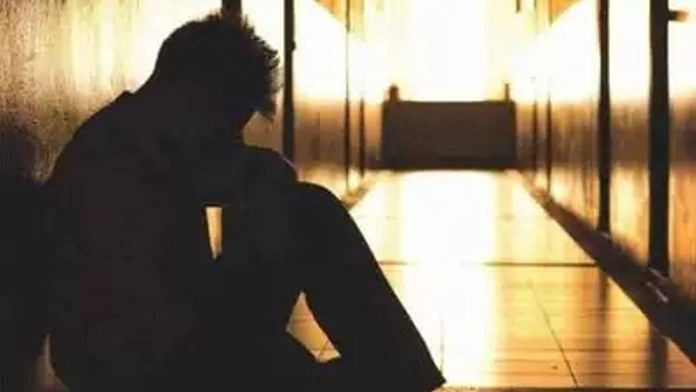New Delhi: Noting that there is a shortage of around 27,000 psychiatrists in India, a parliamentary committee has urged the Union health ministry and the National Medical Commission (NMC) to augment post-graduate and equivalent seats for the discipline in medical colleges across the nation.
According to the department-related Parliamentary Standing Committee on Health and Family Welfare, there are just around 9,000 psychiatrists in the country even though nearly 15 percent of adults — as highlighted in the National Mental Health Survey-1 (NMHS) 2015-16 — require active intervention for one or more mental health issues.
The panel tabled its 148th report on ‘Mental Healthcare and Its Management in Contemporary Times’ in the Lok Sabha Friday.
Headed by parliamentarian Bhubaneswar Kalita, the committee underlined that India has only 0.75 psychiatrists per 1,00,000 population, while the desirable number, going by the World Health Organisation, is above three psychiatrists per 1,00,000 people.
As of now, nearly 1,000 post-graduates in psychiatry join the workforce every year, but the report said that at this rate, it may take India another 27 years to get the recommended number of psychiatrists per 100,000 population.
The global average of psychiatrists per 1,00,000 population is 1.7.
The report also mentioned that there are around 2,840 accredited clinical psychologists (who mainly undertake talk therapy), but expressed concern that, with the National Education Policy 2020 recommending discontinuation of M.Phil courses and several institutions following the measure, there may be a further crisis of psychologists in the country.
The committee recommended that “short-term training courses should be formulated to strengthen the number of mental health workers and also further the capacity of existing mental health service providers”.
Also Read: Get rid of M.Phil in India — Modi govt’s new education policy draft recommends
Mental health crisis
The NMHS 2015-16 had highlighted that around 150 million Indians are affected by some type of mental illness, while the mental morbidity of individuals above the age of 18 years was 10.6 percent, and the lifetime prevalence of mental disorders in the surveyed population was 13.7 percent.
Mental morbidity refers to the incidence of both physical and psychological deterioration as a result of a mental or psychological condition.
The survey had also pointed to the coexistence of common mental disorders, severe mental disorders, and substance use problems, with the middle-aged working population being particularly affected.
Also, the treatment gap associated with mental health was huge, the survey found, and the reasons for this ranged from lack of availability to affordability of treatment.
The treatment gap in India for mental disorders ranged between 70 to 92 percent for different disorders, the parliamentary committee noted in its report.
As the COVID-19 pandemic increased risks to mental health and psycho-social well-being and accentuated stress factors for all, the committee has recommended that the NMHS-2, which is scheduled to be completed in 2025, should be expedited so that the impact of the pandemic may be accurately ascertained.
The panel’s report also expressed worry at the rising rate of suicides in the country, highlighting that according to the National Crime Records Bureau’s ‘Accidental Deaths & Suicides in India’ 2021 report, the suicide rate has increased to an alarming 12 per 1,00,000 population.
The panel has, therefore, asked the health ministry to strengthen surveillance mechanisms, through the National Suicide Prevention Strategy, to track factors causing suicides and devise mitigation strategies.
(Edited by Nida Fatima Siddiqui)
Also Read: How IITs & other top science institutes are trying to boost mental health on campus



